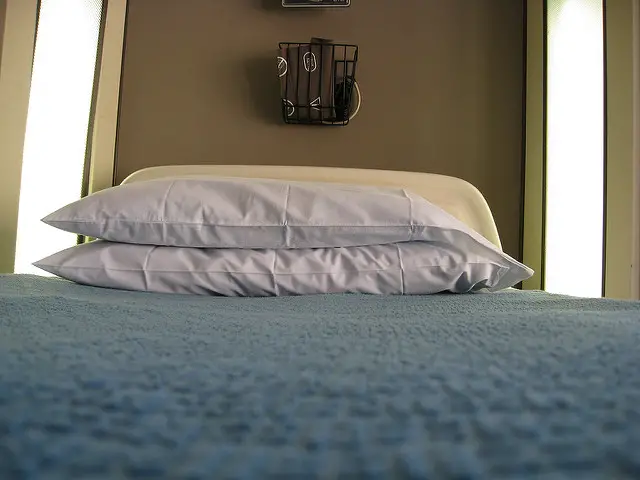On an average day at the Isle of Wight NHS Trust, six beds are occupied by patients who no longer need to stay in hospital, according to figures from NHS England.
In May, the latest month for which figures are available, patients at the Trust spent a total of 171 days waiting to be discharged or transferred to a different care facility – equivalent to over six months of waiting time.
The figures show that 57% of these delays were caused by problems with social care and 43% by problems with the NHS.
What is a delayed transfer of care?
A ‘delayed transfer of care’ occurs when a patient remains in a bed after being officially declared ready for transfer.
Patients must be safe to transfer and signed off by both a doctor and a multidisciplinary team, which could include social or mental heath care workers, before they are classified in this way.
Lengthy sign off process
Independent healthcare charity the King’s Fund has said that this sign off process was sometimes lengthy and there could be many more people who were able to leave hospital but had not been officially declared as ready for transfer.
The figures do not include delays in transferring a patient between wards, or from one acute hospital to another.
Delayed transfers of care can occur for a variety of reasons, including bed shortages at residential or nursing homes and delays in setting up home care packages.
They have the greatest impact on elderly patients. According to the NHS, for a person over 80 a hospital stay of over ten days can lead to ten years of muscle ageing.
National picture
Across England, an average of nearly 4,500 beds a day were not able to be used by new patients in May, representing roughly 3.8% of all occupied beds. The government target is 3.5%.
This resulted in a total of 139,204 ‘delayed’ days, equivalent to just under 400 years of lost time.
The national rate peaked in February 2017 at a rate of 6,660 beds per day, but has decreased steadily over the past year.
Commenting on the national figures, an NHS spokesperson said:
“Patients who are well enough to leave hospital should be able to do so at the earliest opportunity.
“The latest figures show 1,258 more beds were available in May 2018 than in the same month a year ago due to the action taken to reduce delayed transfers of care.”
CQC’s Beyond Barriers report
A report on delivering care for older people released last week by the Care Quality Commission (CQC) highlighted concerns about Government targets for delayed transfers of care.
The report, ‘Beyond Barriers’, cautioned that Trusts focusing on trying to hit government targets might end up delivering lower quality care as a result.
A CQC spokesperson said:
“As our report highlights, there is too much ineffective coordination of local health and care services – leading to fragmented care for older people.
“Our report recommends a single joint framework for measuring the performance of how agencies collectively deliver improved outcomes for older people.
“This would reflect the contribution of all health and care organisations, rather than relying primarily on information collected by acute hospitals.”
Article shared by Data Reporter as part of OnTheWight’s collaboration with Press Association and Urbs Media
Image: dreamingofariz under CC BY 2.0





